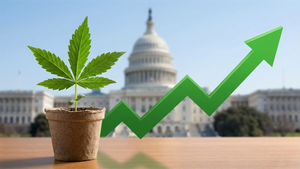
As the specter of a U.S. government shutdown once again casts a shadow over global financial markets in early October 2025, the cryptocurrency ecosystem is exhibiting a fascinating and robust response. While traditional markets brace for potential instability, both Bitcoin (BTC) and gold have seen significant rallies, reinforcing their narratives as hedges against fiscal uncertainty and governmental dysfunction. This hypothetical shutdown, though a recurring concern, is prompting a re-evaluation of decentralized assets as investors seek refuge from the turmoil.
The looming shutdown, a consequence of ongoing political impasses, threatens to disrupt government services, delay economic data releases, and inject a fresh wave of volatility into an already complex global economic landscape. For the crypto world, this scenario is not merely a political event but a profound test of its resilience and its growing role as an an alternative financial paradigm. The immediate reaction has been a notable surge in Bitcoin's price, nearing its all-time highs, while gold continues its ascent, highlighting a broader market flight to safety.
Market Impact and Price Action
The current hypothetical U.S. government shutdown has served as a powerful catalyst for both gold and major cryptocurrencies, showcasing distinct yet complementary reactions to fiscal uncertainty. Gold, the perennial safe-haven asset, has surged to new record highs, trading between $3,895 and $3,923 per ounce. This upward trajectory is a direct consequence of heightened investor anxiety and a palpable erosion of confidence in traditional financial systems and the U.S. dollar's stability. Historically, while brief shutdowns saw gold trade sideways or weaken, prolonged closures led to average rallies of 2%, with that strength often sustained for months. The current surge, however, is described as more significant, underscoring deeper market concerns.
Bitcoin's reaction has been particularly compelling. Defying expectations of broad market downturns, BTC prices have jumped above $118,000, reaching as high as $123,850, tantalizingly close to its August all-time high of $124,596. This robust performance is a confluence of several factors. Firstly, a similar safe-haven demand, as investors seek assets independent of government policy, mirrors gold's appeal. Secondly, significant inflows into spot Bitcoin ETFs have been a major driver, with nearly $1.5 billion week-to-date and an estimated $50 billion year-to-date, providing substantial bullish momentum. Adding to this is the "Uptober" seasonality, where October has historically been Bitcoin's strongest month, averaging over 14% gains since 2013. Lastly, the anticipation of further Federal Reserve interest rate cuts in October and December (with a near 99% probability of a cut in October) is adding liquidity and making riskier assets like Bitcoin more attractive.
Beyond Bitcoin, other major cryptocurrencies have also demonstrated strength. Ethereum (ETH) has climbed 5.5% to $4,337, and Solana (SOL) has risen nearly 7% to $219. This collective upward movement among leading decentralized assets suggests a broader market sentiment favoring independence from governmental instability. However, the picture is not uniformly bullish across the entire crypto ecosystem. Altcoins, particularly those awaiting regulatory clarity or ETF approvals, face potential headwinds. Agencies like the U.S. Securities and Exchange Commission (SEC) and the U.S. Commodity Futures Trading Commission (CFTC) operating with skeleton crews could delay crucial crypto rulemaking and ETF reviews, exposing these assets to increased volatility and regulatory uncertainty.
Community and Ecosystem Response
The crypto community's response to the potential government shutdown is largely characterized by a blend of cautious optimism and a renewed emphasis on the core tenets of decentralization. On social media platforms like X (formerly Twitter) and Reddit, sentiment leans towards Bitcoin and other major cryptocurrencies as viable alternatives to traditional financial instruments during periods of government-induced instability. Discussions frequently highlight the "digital gold" narrative for Bitcoin, with many seeing the shutdown as a real-world stress test that validates crypto's value proposition.
Crypto influencers and thought leaders are largely echoing this sentiment, emphasizing the inherent resilience of decentralized networks. They point to the fact that blockchain transactions and DeFi protocols operate independently of government operations, making them immune to the direct operational paralysis caused by a shutdown. While there's acknowledgment of potential short-term volatility due to broader market jitters, the overarching message is one of long-term conviction in crypto's ability to serve as a hedge.
For related DeFi protocols, NFT projects, and Web3 applications, the impact is more nuanced. While their underlying technology remains unaffected, a prolonged shutdown could indirectly influence user adoption and investor sentiment if the broader economy suffers. Regulatory delays, as mentioned, pose a significant concern for projects that require governmental approvals or clearer guidelines. However, the very nature of these decentralized applications means they can continue to function without direct government oversight, potentially making them more attractive to users seeking financial autonomy. The broader crypto Twitter and Reddit sentiment reflects a growing belief that such governmental disruptions only serve to underscore the need for and value of a decentralized financial system.
What's Next for Crypto
Looking ahead, a U.S. government shutdown presents both short-term challenges and long-term opportunities for the cryptocurrency market. In the short term, the most immediate impact will be increased market volatility driven by a "data blackout." The delay in critical economic data releases, such as jobs reports and inflation figures, creates an information vacuum that makes it difficult for investors to gauge the Federal Reserve's next moves. This uncertainty can lead to amplified price swings in assets like Bitcoin, which tend to react strongly to market sentiment. Investors should also anticipate potential profit-taking after initial rallies, as seen with gold, leading to temporary pullbacks.
However, the long-term implications appear more favorable for the crypto ecosystem. A sustained period of governmental dysfunction reinforces the safe-haven narrative for both gold and Bitcoin. For Bitcoin, in particular, the shutdown strengthens its position as a hedge against political instability, economic uncertainty, and potential fiat currency debasement. This scenario is likely to accelerate the trend of increased institutional adoption, as evidenced by significant ETF inflows and reaffirmations of bullish price targets from institutions like Standard Chartered (LSE: STAN), which maintains a year-end Bitcoin price target of $200,000, citing the shutdown as a catalyst.
Furthermore, repeated government shutdowns could gradually erode confidence in U.S. fiscal management, leading to a weakening U.S. dollar and pushing more investors towards alternative, non-sovereign assets. Experts suggest that each instance of dysfunction in Washington helps mature the crypto market, particularly Bitcoin, by clarifying its value proposition to a wider audience. Strategic considerations for projects and investors include focusing on decentralization, building robust infrastructure, and educating users on the benefits of self-custody and permissionless finance. Potential scenarios range from a brief shutdown with limited lasting impact to a prolonged one that significantly alters investor perception of traditional finance, driving further adoption of crypto.
Bottom Line
The current hypothetical U.S. government shutdown serves as a critical stress test for the cryptocurrency market, highlighting its evolving role in the global financial landscape. For crypto investors and enthusiasts, the key takeaway is the reinforced narrative of Bitcoin and, to a lesser extent, other major cryptocurrencies as resilient hedges against governmental and economic instability. While short-term volatility is an expected companion to such events, the long-term significance lies in the potential for accelerated institutional adoption, a further cementing of crypto's "digital gold" status, and a growing recognition of its independence from traditional political machinations.
This event underscores that as governments grapple with fiscal challenges, decentralized assets offer an increasingly attractive alternative. The consistent performance of Bitcoin and gold during this period of uncertainty suggests a maturing market where digital assets are gaining credibility as legitimate stores of value. Important metrics to monitor moving forward include continued ETF inflows, the U.S. dollar index's performance, and global regulatory responses to the evolving crypto landscape. Ultimately, a prolonged shutdown could serve as a powerful catalyst for broader crypto adoption, pushing more individuals and institutions to explore financial systems that operate beyond the reach of political gridlock.
This article is for informational purposes only and does not constitute financial or investment advice. Cryptocurrency investments carry significant risk.





